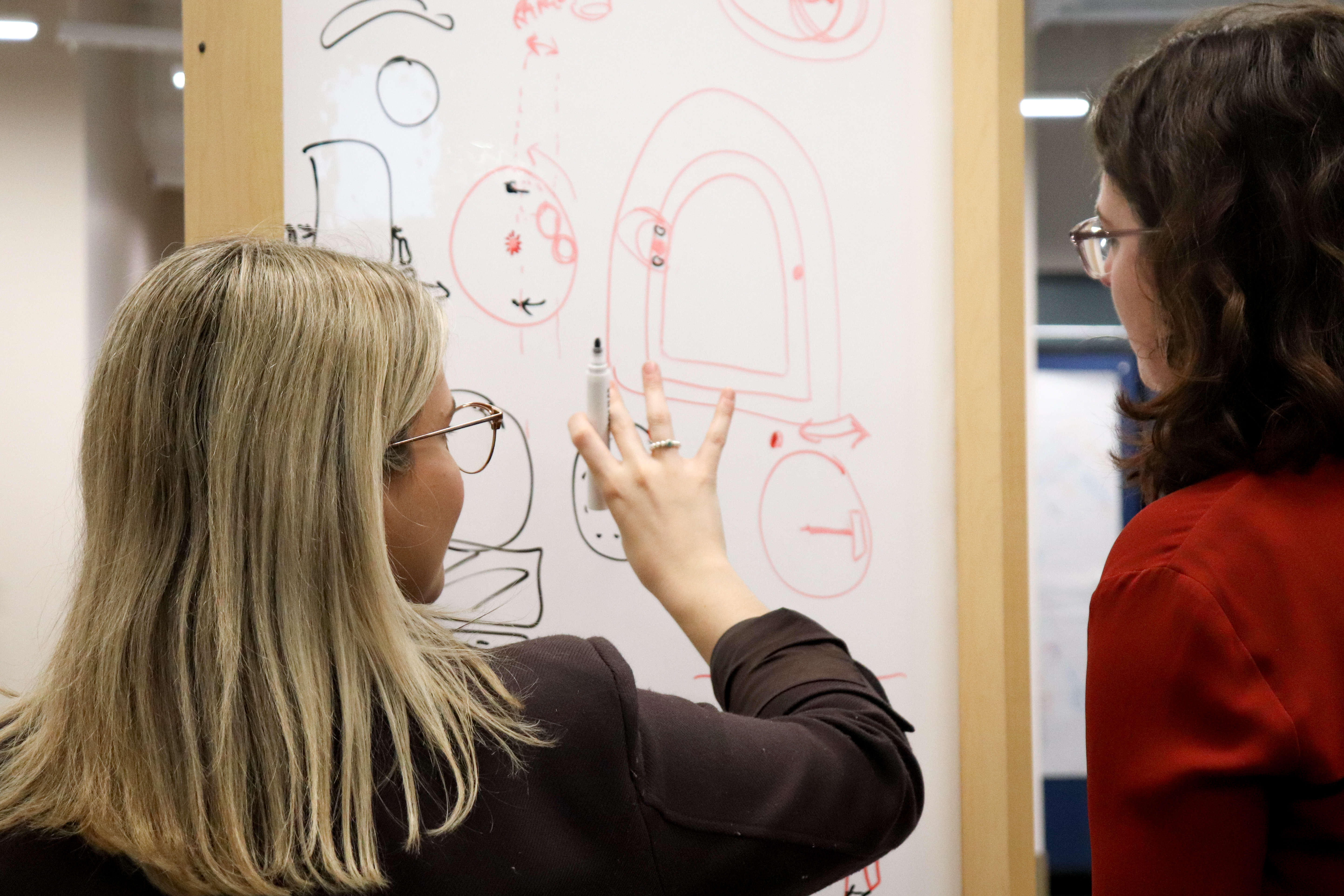New MedTechVic prototypes to transform everyday lives of people with a disability

Swinburne’s MedTechVic team working on the design of the Comfort Seat, a solution providing pressure relief and improving stability for toileting.
In summary
Swinburne’s MedTechVic has revealed three new prototypes designed through the joint Health-led Manufacturing Innovation Program, in partnership with the Australian Medtech Manufacturing Centre and Safer Care Victoria
The MedTechVic team worked closely with end-users and people with lived experience of disability to co-design products including the Comfort Seat, the GlideMate and the Sit & Stroll
The innovative medtech products are set to transform everyday tasks – from sitting and toileting, to transferring a person between their wheelchair, car or bed
Swinburne University of Technology’s MedTechVic has revealed three new prototypes – the Comfort Seat, the GlideMate and the Sit & Stroll – created through the joint Health-led Manufacturing Innovation Program (HMIP), in partnership with the Australian Medtech Manufacturing Centre and Safer Care Victoria.
Launched at Swinburne in 2022, the HMIP supports Victorian-made products that address clinical needs to be brought to market faster.
The program aims to create stronger connectivity with key stakeholders – improving patient outcomes and health system efficiency – by bringing together clinical leaders, health service professionals, researchers, industry and innovators to jointly solve prioritised challenges.
Comfort Seat
MedTechVic’s experts have developed a new padded toilet seat design – the Comfort Seat – which reduces the risk of pressure wounds and improves stability when toileting.
This project was completed through consultations with healthcare professionals and people with lived experience through co-design workshops, to ensure the resulting products are fit for purpose.
The Comfort Seat project resulted in two products: a specialised seat providing pressure relief and a winged toilet seat that provides increased stability.
The two seats were designed to reduce the risk of hospitalisation due to pressure wounds, reduce the risk of falls and increase the independence of end users. The project also aimed to add to Australian sovereignty by promoting local manufacturing.
GlideMate

A Computer-Aided Design (CAD) concept of the Glide-Mate portable transfer board.
MedTechVic’s experts also completed seven Computer-Aided Design (CAD) concepts of a state-of-the-art portable transfer board, known as the GlideMate.
The GlideMate will improve independence for people using wheelchairs to travel and transfer in and out of cars, beds and toilets, and will reduce the risk of falls. The technology has the potential to reduce the inequity experienced by people using wheelchairs when travelling and navigating new experiences, increasing their quality of life and happiness.
The GlideMate transfer board design meets a broad spectrum of end-user requirements, and was created through two co-design workshops involving people with lived experience.
Sit & Stroll
MedTechVic also developed the Sit & Stroll, a novel crutch featuring a seat, which was developed together with end-users and healthcare professionals through collaborative workshops. This original design provides seating for crutch users to help reduce rapid fatigue.
The Sit & Stroll allows for increased social engagement and quality of life for consumers. The design increases people’s confidence when using the crutch, and reduces the risks of falls and fainting due to fatigue.
Collaboration key to meaningful product design
Swinburne’s MedTechVic was among four expert partners who worked closely with end-users and people with lived experience of disability to co-design solutions to a variety of challenges.
“Collaboration is at the heart of everything that we do at MedTechVic,” says MedTechVic Director, Professor Rachael McDonald.
“The HMIP project allowed us the opportunity to work closely with end-users in order to produce solutions-focused products that are designed with empathy.
“By engaging with end-users directly, we were able to create solutions that address their specific needs, which ultimately leads to more meaningful and impactful products.”
-
Media Enquiries
Related articles
-

- Astronomy
- Technology
- Health
- Science
- University
- Sustainability
- Engineering
Swinburne highly cited researchers reach the top in 12 fields
Ten Swinburne academics have been named on the Highly Cited Researchers 2025 list, released by Clarivate
Tuesday 02 December 2025 -

- Technology
- Health
- Science
- University
$1.2m ARC funding to boost national X-ray spectroscopy capability through Swinburne and QUT partnership
Swinburne has secured $1.2 million in the latest Australian Research Council Linkage Infrastructure, Equipment and Facilities scheme round
Tuesday 02 December 2025 -

- Astronomy
- Technology
- Science
- Engineering
Meet Swinburne’s Roo-ver Mission team
Roo-ver will be Australia's first lunar rover, and it’s being designed, built and tested in Australia. Swinburne is playing a key role in the design and construction of Roo-ver, through its involvement in the ELO2 Consortium.
Wednesday 26 November 2025 -

- Technology
- Health
- Science
- University
- Aviation
- Engineering
Swinburne’s Mobile Innovation Lab hits the road
Swinburne’s Mobile Innovation Lab is a cutting-edge mobile facility designed for research, industry collaboration, STEM education, training and outreach.
Thursday 06 November 2025 -

- Health
- Science
Swinburne and Bionics Institute announce strategic alliance to accelerate medical device research
The Bionics Institute will partner with Swinburne University of Technology in a first-of-its-kind collaboration to accelerate the development of life-changing medical devices.
Thursday 13 November 2025

